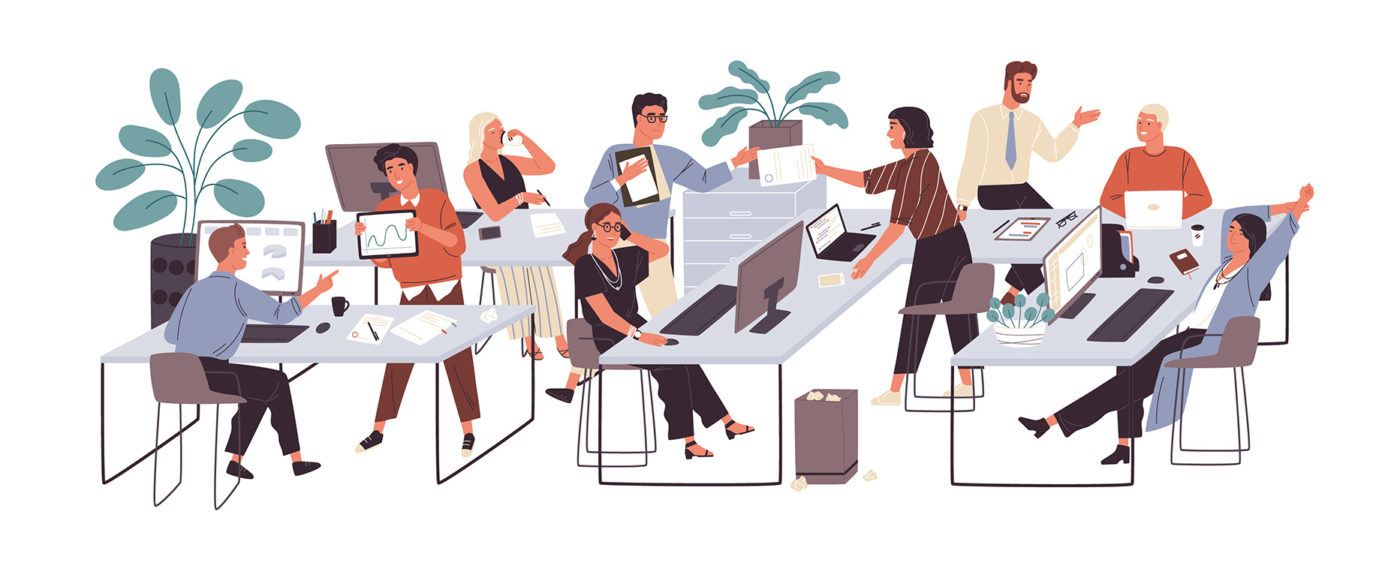RETURNING TO WORK? SEVEN POINTS TO REMEMBER
Much of the arrangements around returning to work has focused on preparing the physical space. Social distancing requirements means that that how we work will change for the foreseeable future. As preventing the spread of the virus is essential, these are changes that we are willing to make and we will get used to over time.
But having been out of the workplace for such a long period of time requires a degree of psychological adjustment as well. Leaving the safety and routine of home, we may now feel a bit nervous being physically out and about once again. Some of us will be more than happy to get back out in the world again – others will be less sure.
In order to make the psychological transition easy for ourselves and others it is worth considering the following:
1. The impact of the Corona19 virus is unique to each person and we all need to be mindful of that.
There is no doubt but the lockdown has had a significant impact on people. People have struggled with childcare, working from home, home schooling, dealing with elderly or sick loved ones, death, illness, cancelled weddings, strain on family relationships…the list is endless.
It’s important to remember that just because the physical sanctions are lifting, don’t assume that everyone feels ok about return to work. Some will be delighted and relieved to get back and will see it as a further sign that life is returning to normal. Others, may be more worried and apprehensive about reconnecting with work. Being at home may be been a blissful time. Remember that the shutdown has been experienced in many different ways by people. It has been a unique experience for every one of us. Don’t assume that others will be feeling the same way as you are feeling.
So as a start, just check in with others and listen to how they are doing. Don’t try and talk them round and get them to try and see things differently. Just acknowledge how they are feeling and check if there is anything that you can do to help. People are amazingly resilient but need to be given time and treated with concern and kindness.
2. Many people are struggling.
Peoples’ lives have changed because of and during lockdown. Weddings were cancelled, babies were born. People lost their jobs and their businesses. Parents are stretched because of childcare, home schooling, and dealing with their children’s anxieties. The Leaving Cert has been cancelled. Graduations cancelled. Opportunities to travel lost. There is an endless list of losses large and small that people have had to deal with. And the impact of those losses is still very real for people.
It is important therefore that we show support for any of our colleagues and friends who may have experienced a loss during the lockdown. Express condolences if they have suffered a bereavement. People will appreciate the fact that you remembered.
Be considerate of how people’s life may have changed during the lockdown period. Remind yourself that it still may be a difficult time for them. Check on how they are doing, and if there is something that you can do to help. People do appreciate genuine concern.
3. It will take all of us some time to adjust, but we will get there. Everyone is approaching the new phase differently.
When the lockdown was first implemented it took us a while to get used to the new reality. But we did. People and households quickly settled into their own routines. What was once new and strange become, over time, just the way we live now.
We will go through the same process as we re-emerge back into the wider world. Things have changed but we will get used to these changes. Queueing to do the grocery shopping doesn’t seem that unusual anymore. It will be the same at work. New ways of behaving will seem strange at first, but over time they will become second nature.
Just allow yourself and each other time to adjust.
4. Respect people’s physical space.
People are understandably nervous about contracting the virus – there is always an element of risk in any social setting. While we may be comfortable with the degree of risk we are exposed to other colleagues may not. We don’t know what may be happening for them – they may have immune compromised parents or children living with them, or may have a health issue themselves that we are unaware of. This may still a time of anxiety for them, and as colleagues and friends it is not our place to add to their anxiety.
So respect people’s space. At work, on the street, in shops – wherever. Just be aware that what may be ok for you, may be causing a great deal of stress and anxiety for the person next to you.
Give them space – don’t judge or get into an argument – mentally, wish them well.
5. You have the right to safeguard your own wellbeing.
I was recently speaking with a friend who was really bothered about the fact that his next door neighbour had friends over for some sort of gathering in their back garden.
He was wondering if he should have called the Gardai, and what he would do so should there be a repeat occurrence.
My question to him was if his health was being put in danger by the behaviour of others. If it was then he had every right to safeguard his health and he should say something. If his health wasn’t being impacted then while he didn’t approve, it was best to leave the neighbours alone.
There seems to be a strong element of judgement regarding other people’s “covid19” behaviour. How people behave with regard to social distancing, dealing with a cough, touching surfaces has become subject to a level of awareness, scrutiny and judgement we have never known before.
You always have the right to safeguard your own health and wellbeing. Don’t be afraid of saying something when someone else’s behaviour puts you at risk. Otherwise, leave them alone.
6. Be kind and supportive.
Workplaces are still trying to figure out how best they can operate and survive in this new reality. It will take time. Everyone, and I mean everyone, is having to adjust and readjust. Workplaces are trying to find ways to keep people safe, support customers, manage finances, connect with employees home working, re-open businesses etc. A whole new set of challenges now exists that we didn’t have to deal with a few months ago.
But that doesn’t mean that we should forget the basics of respect and dignity at work.
I have recently spoken with some individuals who are struggling with work. What bothers them the most is that their Manager have placed all these additional tasks and make additional demands without any further help or resources being provided. When I ask what would help, the answer usually includes an appeal for the Manager to notice and value the additional strain which people are dealing with. Just simple behaviours like “ask, listen and see” lets people know that they matter and that their work and commitment is valued.
And that recommendation runs the other direction as well. Supervisors, Managers and Team Leaders themselves may be struggling. There is now a whole new range of problems to manage in addition to the many demands which they already had to deal with ever before Covid19 appeared.
If ever there was a time to connect with and support each other – no matter what our role is – this is it. Being positive and supporting each other enables us all to meet the changing demands of the workplace.
7. Take Care of Yourself
Each of us only has a limited amount of resources. Don’t think that you can keep going on indefinitely, by just digging deeper, hoping to find more reserves of fuel or energy to keep going. You need to pay attention to, and nurture, your renewable energy sources that will sustain you over the long term. As things currently stands, the ability to deal with Covid19 will be needed for a good while yet.
So invest in your own wellbeing. Look after the basics – good sleep, regular physical activity, eating well, connecting with others, having a meaning in life – all these will sustain you no matter what the future holds. And be kind to yourself.
And don’t forget that the EAP service is there to provide support in helping you take care of your psychological health and wellbeing. Talking it through with someone can be an important way to helping you deal with any challenge you face in life.

